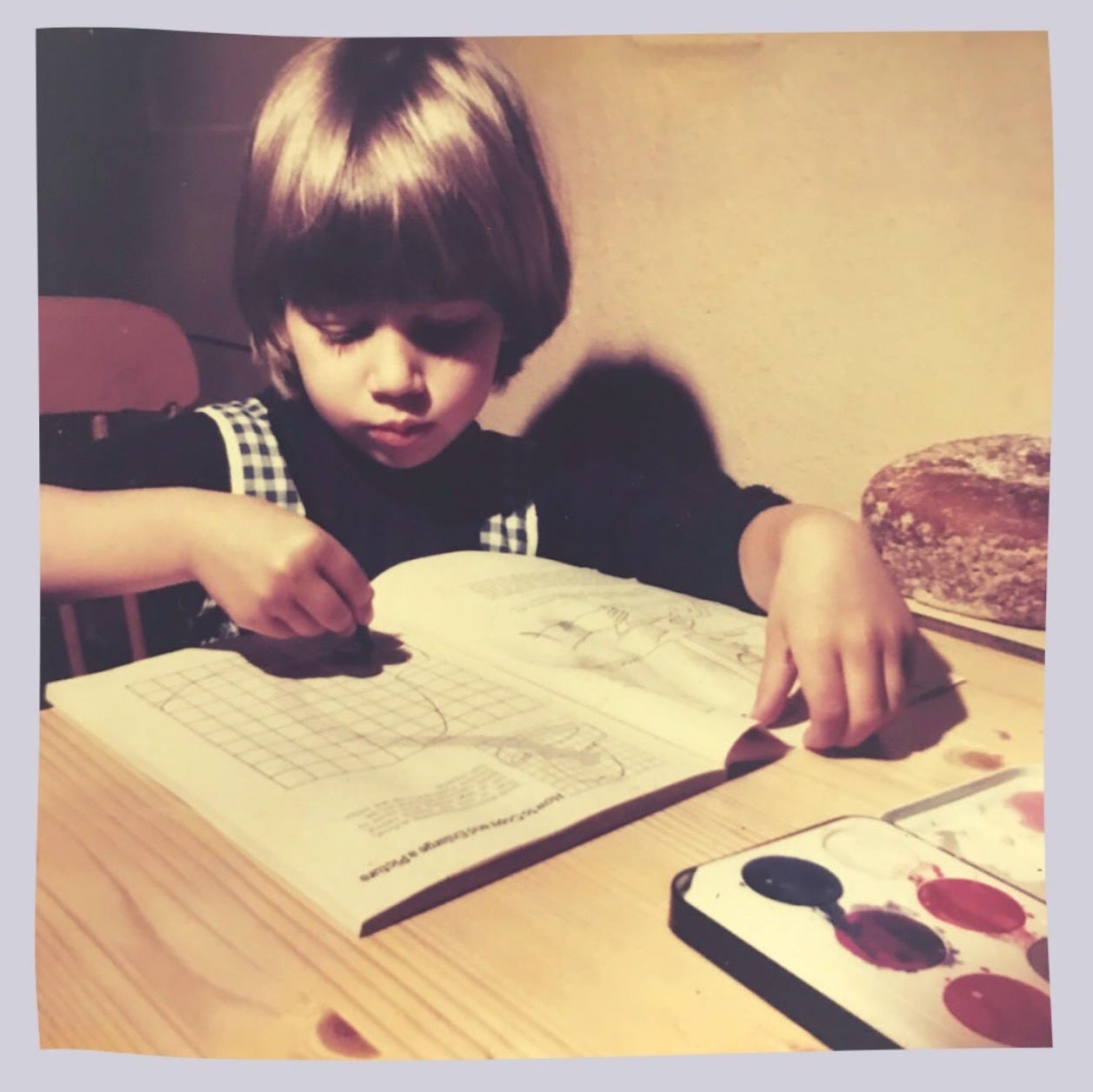Part 1: I Am Dyslexic. Do I Belong on Substack?
My Journey with Dyslexia and Writing

Am I Dyslexic?
I have always loved reading and writing. I love nothing more than being transported to another world, exploring new characters, and being truly moved by brilliant storytelling. But reading makes me sleepy very quickly, and on some days, I have to read a sentence, paragraph, or page multiple times to truly understand it.
But perhaps I have started at the wrong point here. I need to go back to the beginning.
Growing Up Without a Diagnosis
My school reports called me a “daydreamer,” said I “could do well if she could focus,” and noted that I had “lots of potential but gets easily distracted.” I was born in 1975, and by the time I was ready for school, no one was talking about neurodiversity. In fact, if someone was diagnosed as neurodiverse, people often thought it meant, that’s it, life is over—there is so much you can’t do as a child or a parent. The spectrum wasn’t discussed, and there were no assessments through mainstream school.
It took 23 years for me to be diagnosed as dyslexic. I was in my final year at university, at the very end of my education, when I finally received a diagnosis. This was in 2001. The university system gave me extra time to do work, a free computer, and some recording devices, but no practical help, advocacy, or support.
Learning to Navigate a Neurodiverse Life
It took me until I was 45 to apply for Access to Work support. This is when I started to understand that my disability could be supported to help me achieve great things. I started to realize that it was the system that was failing, not me.
Scoot to age 49, and I received my ADHD diagnosis. Suddenly, things became even clearer. When my son was diagnosed with autism the year before, something got me thinking… Hmmmm, could I be? Now I am waiting for my final diagnosis, which could be a heady mix of Dyslexia and AuDHD. A new adventure awaits.
This is the journey of many neurodiverse adults—a slow peeling back of the layers of trauma, personality, social challenges, self-esteem issues, and underneath it all, many of the answers found through diagnosis. Of course, diagnosis raises more questions as well, but it has helped me understand myself better. It has allowed me to communicate more effectively, advocate for myself and others, and dedicate my life to creating more opportunities for the ND community within arts and culture. I take up space where perhaps I don’t belong.
Do I Belong on Substack?
So do I belong in this place? A writing platform filled with professional authors and storytellers? A place where people showcase their written accomplishments and are celebrated, subscribed to, followed?
I often feel like an outlier—an imposter. But that is a position I have always held: on the fringes, looking in. Not quite getting it. Not quite making it. Not quite good enough. Not quite fitting in.
But perhaps approaching 50 means that I give less of a sh*t about not fitting in.
What Will I Write About?
I have thought about this for a while now. They say you should write what you know, so that is what I will do.
I will write about my lived experience.
I will write about my work as the Director of a Not-for-Profit.
I will highlight the social engagement projects I create and facilitate.
I will spotlight the people I mentor, the partners and organizations I collaborate with, and the inspiring projects I see others leading.
I want a space to share the great things that the cultural community is achieving. As one of my peers shared with me today:
“Creativity is the solution, not the problem.”
I also want to share how I cope with the challenges of being a neurodivergent creative—how I manage my mental health, well-being, and progress toward my ambitions.
If this sounds like something you are interested in, I would love to have you join me on this journey and share your experiences!
Part 2 coming soon….
Part 2: Overcoming Imposter Syndrome as a Neurodivergent Creative
✨ Hi! I’m Corinne. I run Creative Heritage Studios CIC where we help artists and creatives thrive without compromising their values. We explore the intersection of culture and commerce, create opportunities for neurodiverse creatives, and champion sustainable, impactful projects. If you’d like to support our work or collaborate, learn more here.






Thank you so much for sharing your story and journey. I hope you find a safe place on Subtack. you have a voice here. (Love your photo!)